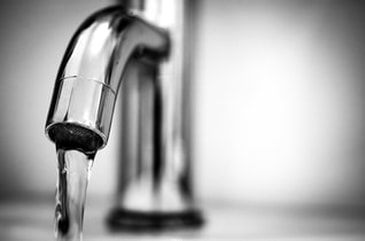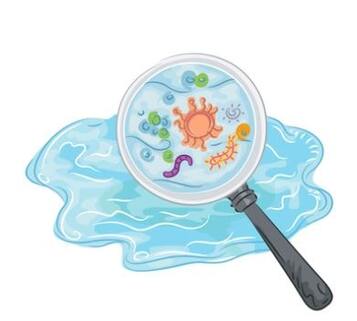Water quality testing can ensure your water is safe to consume.
Drinking contaminated water can cause major health problems for you and your family.
Many homeowners do not know what is present in their water. To find out, Hope Home Inspections uses an environmental analytical laboratory that will test a home’s water for the following contaminates:
Bacteria (E. Coli, total coliforms)
- Coliform bacteria in well water can be an indicator of worsening water quality. Some bacteria come from fecal matters, and others naturally occur in soils, vegetation, insects, etc.
Nitrate
- Common sources are fertilizers, septic systems, animal manure. and leaking sewer lines. High levels of nitrate in well water present a health concern. Drinking large amounts of water with nitrates is particularly threatening to infants.
Lead
- Properties built before 1986 likely have plumbing systems that consist of ” lead contributors” like lead piping, copper pipes with lead solder, and brass fixtures. These “contributors” can potentially cause lead to leak into water. Lead is harmful entity which can cause major health problems.
If you have a well or home built before 1986 you should have the water tested.
Make sure your water is safe for you, your family, and your pets today.
Why should my water be tested?
Drinking contaminated water can cause health problems for yourself, your family, and your pets. Some contaminants cannot be seen, smelled, or tasted, so the best way to ensure your water does not contain these harmful components is through having the water tested.

When should my water be tested?
- If buying a home built before 1986 Lead may be present in the water:
- Properties built before 1986 likely have plumbing systems that consist of “lead contributors” like lead piping, copper pipes with lead solder, and brass fixtures. These “contributors” can potentially cause lead to leak into the water supply of the home at levels far exceeding the current EPA guidelines. Lead is a harmful entity which can cause major health problems for yourself, your family, and pets. However, most of our exposure comes from past use of lead-based paint, leaded gasoline, and lead-emitting industry. For more information visit: The United States Environmental Protection Agency.
- When you move into a new home that has a well water supply.
- If you notice a change in your water’s taste, color, or smell.
- If your well has been flooded
- If you replace any part of your well system.
- When someone in your household is pregnant, nursing, or has an unexplained illness and you suspect your water may be at risk.
- If you hear that a neighbor’s water is contaminated
- If you live near industrial or agricultural activities.
The Department of Health recommends you to test your private well water every year for Coliform bacteria and nitrate.

For more information visit the Florida Department of Health site.
What is Coliform Bacteria and Nitrate?
Coliform bacteria:
- These bacteria are present in the environment and in the feces of all warm-blooded animals and humans. Fortunately, Coliform bacteria is not likely to cause illness. However, their existence in the water indicates that disease-causing organisms could be present in the water system.
Nitrate:
- Nitrate is a chemical found in most fertilizers, manure, and liquid waste discharged from septic tanks. Rain or irrigation water can carry such nitrate down through the soil into groundwater. State law requires public water systems to sample for many contaminants, including nitrate, on a regular basis, so this is more of a problem for homes on a well system. Nitrate found in a water system is termed an acute contaminant because one exposure can affect a person’s health. The chemical reduces the ability of red blood cells to carry oxygen. In most adults and children, these red blood cells rapidly return to normal after exposure, but in infants it can take much longer for the blood cells to function normal.
The water testing we offer conforms to the FHA, HUD and VA standards.
For FHA loan:
- If an Individual Water Supply System is present, “the Mortgagee must ensure that the water quality meets the requirements of the health authority with jurisdiction. If there are no local (or state) water quality standards, then water quality must meet the standards set by the EPA, as presented in the National Primary Drinking Water regulations in 40 CFR 141 and 142.”
For HUD loan:
- When testing is required, the water well must meet the requirements of the local authority. If the local authority does not have specific requirements, the maximum contaminant levels established by the Environmental Protection Agency (EPA) will apply. See Mortgagee Letter 2005-48 and HUD Handbook 4150.2, Chapter 3, Paragraph 3-6, A-5a for more detailed information.
For VA loan:
- VA Loans require connection to a public or community water/sewage disposal system whenever feasible. When the subject property has a well as the water source VA Regional Loan Centers have different requirements for testing the well water to make sure the water meets the requirements of the health authority having jurisdiction.
Questions? Contact us
Hope Home Inspections LLC
6497 Parkland Dr
Unit: J
Sarasota, FL 34243
941-773-1144
info@hopehomeinspections.com
